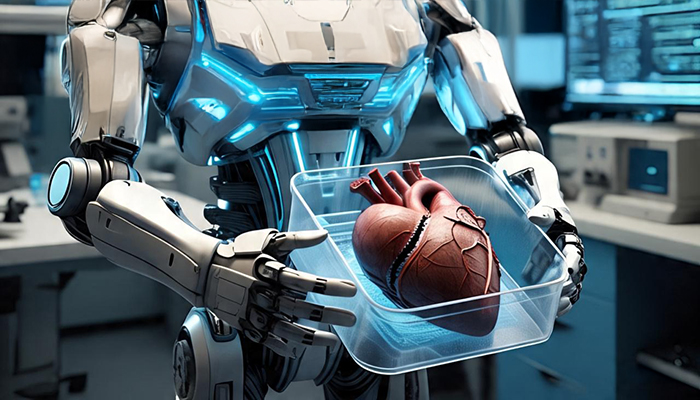Beneath the tall mountains of the south and the forested hills of the west lives a couple in a beautiful home that has all the amenities of a modern 21st century abode. They carry on happily with their day-to-day activities, their private conversations, and their routine life, completely oblivious to the fact that someone, somewhere is observing their each move keenly. This unknown individual listened to over 1700 audio recordings that disclosed the couple’s alarm and security codes, their profession, their work timings, their personal habits, their taste in music, and most importantly, the recordings revealed the ample conversations that took place in the privacy of their home. These strange recordings were sent to the unknown individual by one of world’s largest e-commerce companies— Amazon. Alarmed by the error made by the company, every proud voice assistant owner had just one question to ask his device, “Alexa, is someone else listening to us?”
Smart speakers, voice assistants, and chat bots have gained immense popularity in recent years. While people had ample fun shooting silly questions at Amazon’s Alexa, Apple’s Siri, and OK Google, the incident mentioned above, wherein a German man was granted access to thousands of audio files, which had been recorded in a stranger’s Alexa-powered home, alarmed the entire world. Despite Amazon’s repeated assurance that this was a one-off incident, the fact that manual labor is involved behind every AI device can simply not be ignored.
Drawbacks of Artificial Intelligence (AI)
Let’s start with smart voice assistants. After a man in Germany had been given access to a stranger’s private conversations, a man in Portland received files whose recording had taken place at one of his friend’s private home; again, powered by Amazon’s Alexa. After many such incidents came to light, Amazon was finally forced to admit that they hire employees to listen to conversations from Echo, Alexa, and other smart speakers owned by their company. In a statement released by Amazon, it was claimed that the information they receive helps in training their speech recognition system so Alexa can understand human commands better. In short, each time you say Alexa and the device activates, be rest assured that an employee is listening to each of your commands so as to enable Alexa to understand your accent, speech, and the exact instruction. The privacy of such AI is a topic of discussion for another time. However, smart voice assistants aren’t the only AI device that errs. Chatbots are yet another example that has failed ample times.
According to an article released by Forbes in 2018, chatbots are in fact killing the customer service industry on a global scale. According to a survey released by the annual Global Consumer Customer Service Report, over 50% UK consumers and 40% US consumers said they preferred human interactions as opposed to a chatbot. And over 25% consumers claimed they would reach out to a company directly via emails or social media and relied less on automated chatbots. Chatbots lead to clumsy conversations, and more often than not, they also fail to provide customers with precise answers in their hour of need. And let’s face it, despite it being the 21st century, there’s only so much a machine can do.
So, if there is one lesson the world has learnt from Amazon’s Alexa and the failure of chatbots, it is the bitter truth that the world of AI still has a long way to go. And until AI is able to operate with minimal human involvement, ample manual labor is still expected to rule the market.
How AI is connected to data entry
Artificial intelligence, machine learning, and IoT (Internet of Things) have ruled the market in recent years. Businessmen feel AI has simplified the tedious task of manual data processing, made their lives easier, and improved their quality of life overall. Have AI and machine learning really affected the world of data entry? The answer is YES, without a doubt! The world is moving at a tremendous pace, technologies are evolving rapidly, and humans are riding the waves of time to reach the shores of a digital age of automation.
As a result of artificial intelligence, machine learning, IoT, and software like Robotic Process Automation (RPA), data entry processing has become much faster, safer, more error-free, more responsive, and highly consistent. Huge chunks of data are managed in a matter of seconds with efficient results.
But just like Alexa has thousands of Amazon employees listening to commands to direct her, every automated data entry input requires human labor to give it the expected efficiency. Although it is believed that the use of AI and smart technologies will leave several data entry experts jobless, nothing could be further away from the truth.
AI facilitates and does not overtake manual data entry processing
Robotic Process Automation (RPA) is one the most widely used automation technologies by businesses globally. However, they are also considered to be expensive and time-consuming. The most important point, however, is the fact that a technology like RPA can never replace human capabilities; instead, it assists and simplifies data entry processing to add more value to organizational activities. According to a recent article published by Forbes, humans and software are bound to one another with a constant exchange of information, and neither of them will be of much use without the other. The role of AI, machine learning, and RPA exists to make a task easier as opposed to excluding human labor altogether.
Bottom line? Machine-fed data is never perfect science. You require human force and intelligence to validate the accuracy of data, correct extracted data, and finally, review it for perfection. While this task isn’t as tedious as it was a decade ago (thanks to automation), it still does require manpower and an employee who is skilled enough to perform it. Data entry is not the core of every business, but it is the one task that if ignored, can cause irreparable damage.
So what should your next move be? Just like Alexa has a team of employees working at the back end to make her perfect, you need data entry experts who can lead your business to the top. You can outsource data entry requirements, hire data entry experts from India and other Asian countries, or employee a staff full-time in your home country; whichever option you choose, make sure you invest smartly because no matter how high-end a technology you use or how much AI evolves, you will always require human intelligence, experience, and decision making skills to boost your business growth. Remember, automation empowers and does not overtake!







